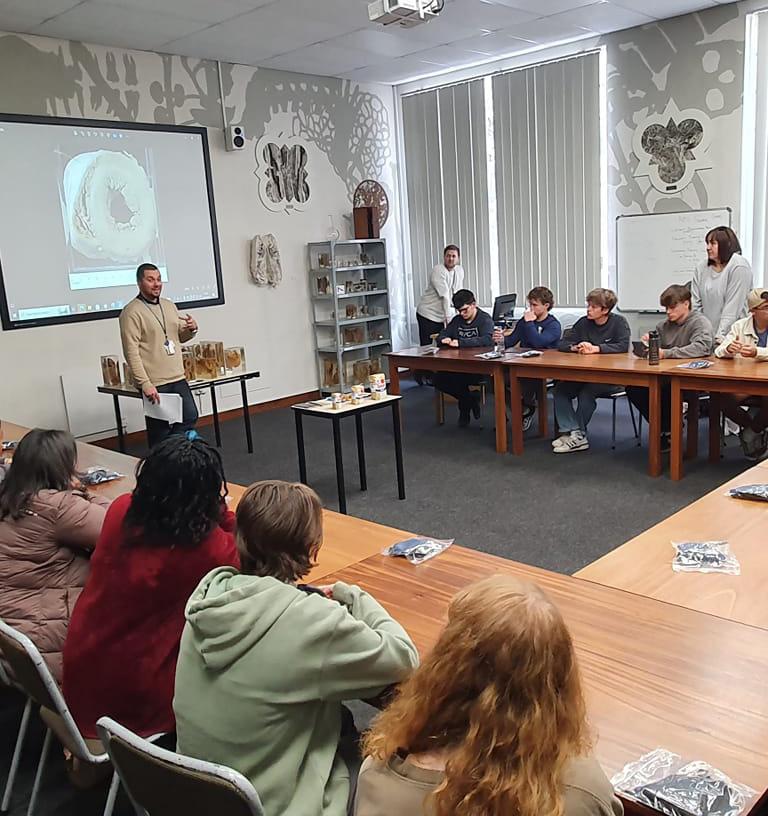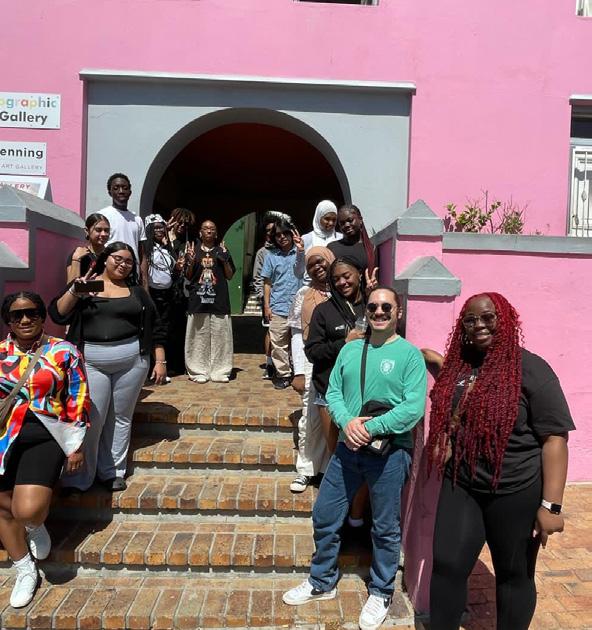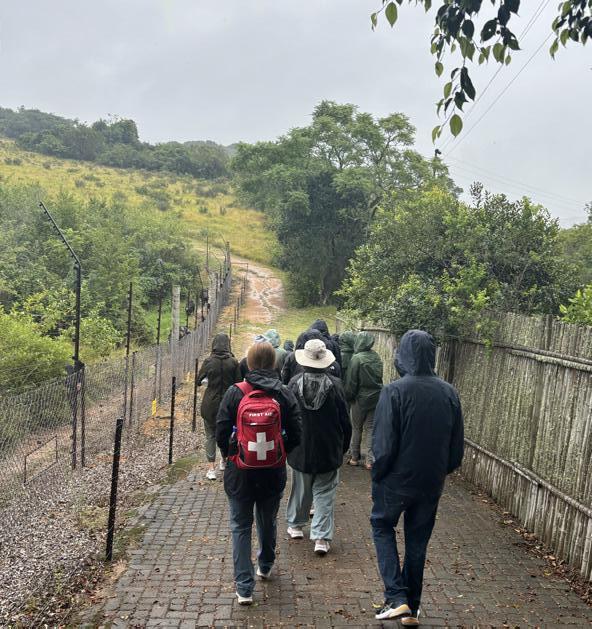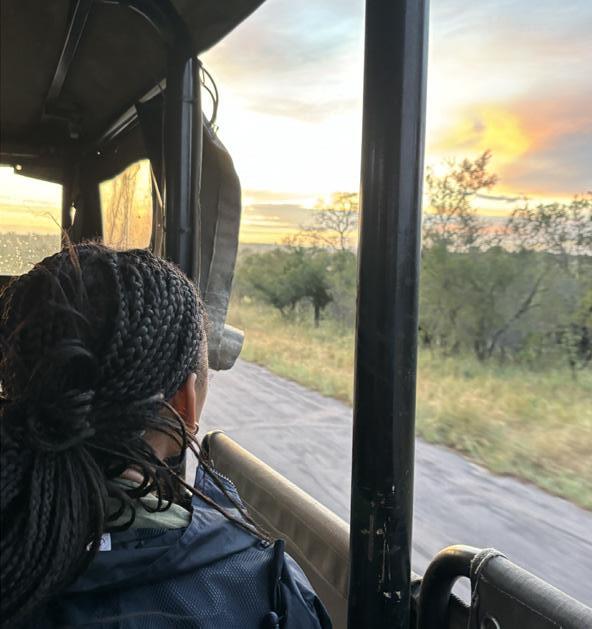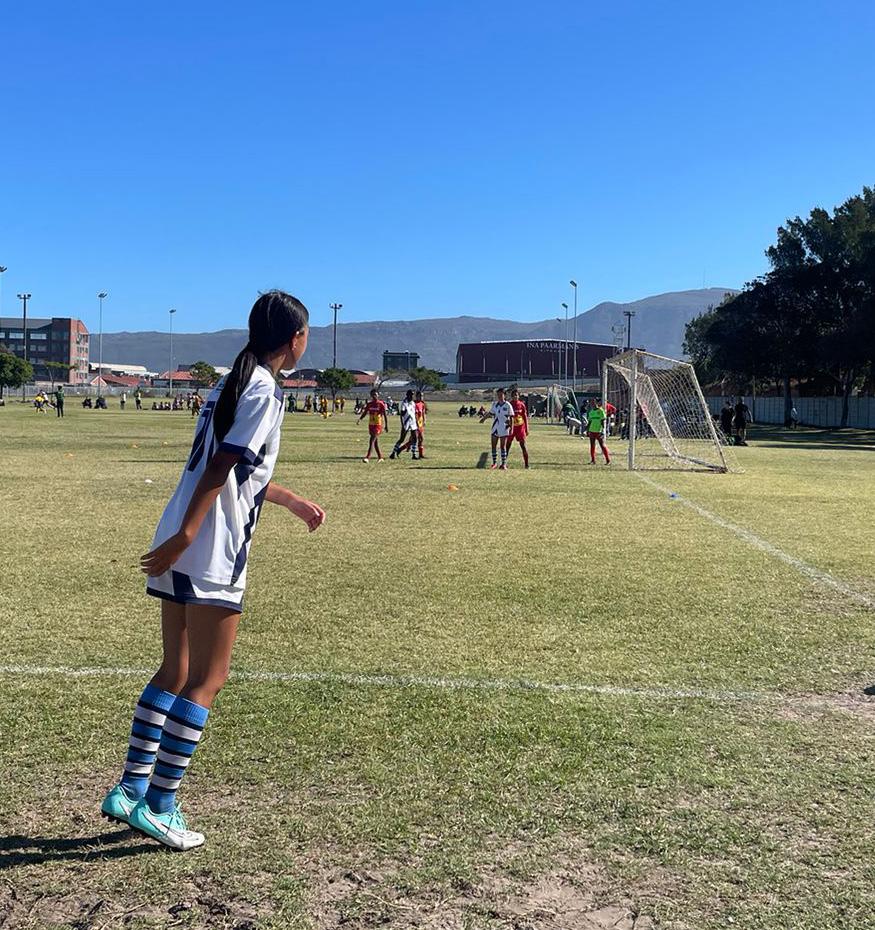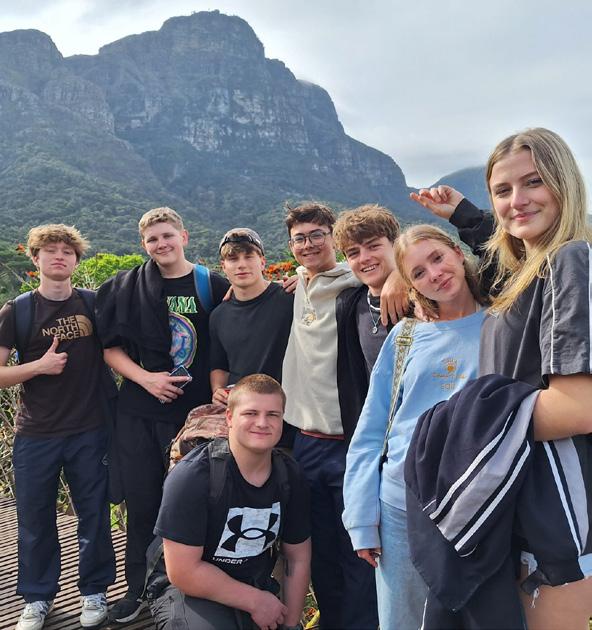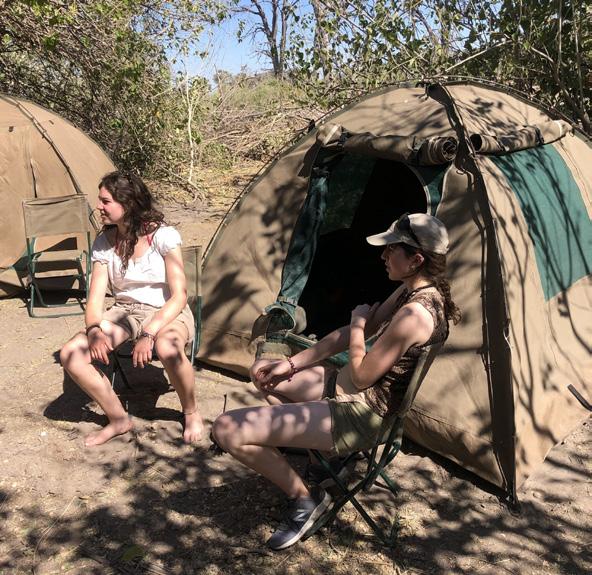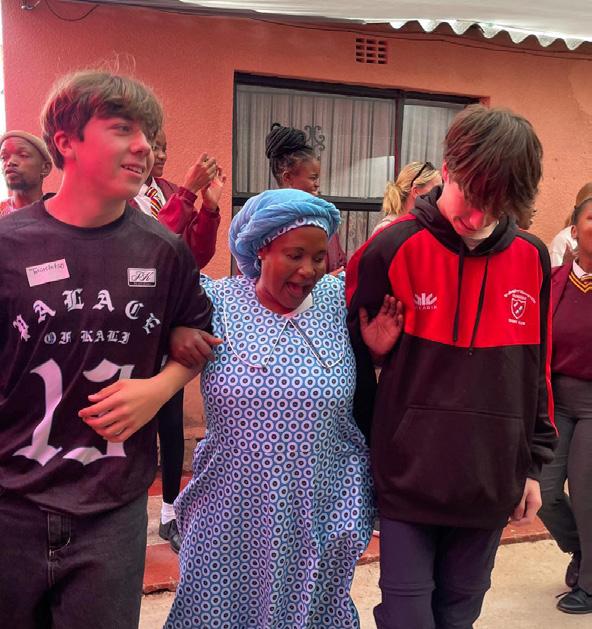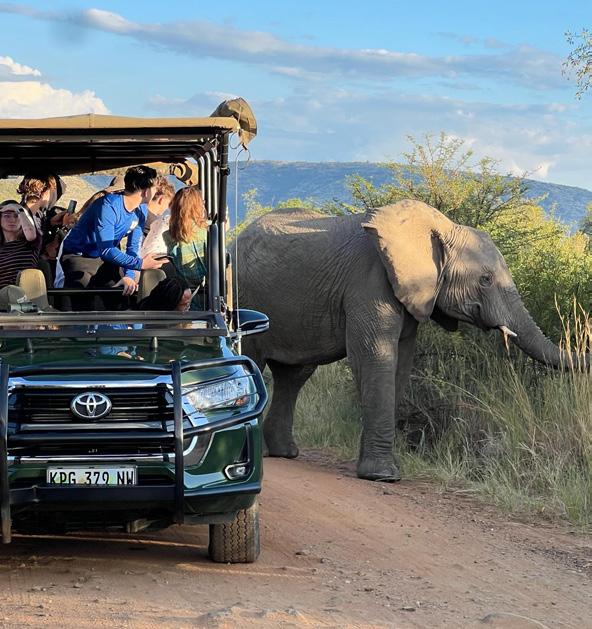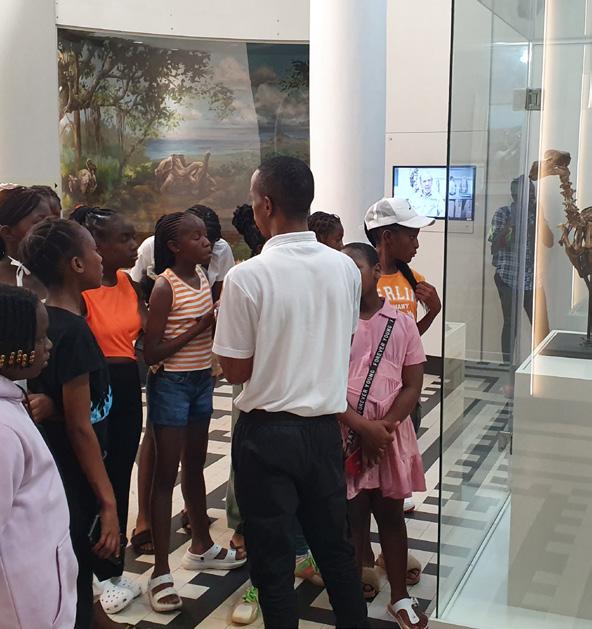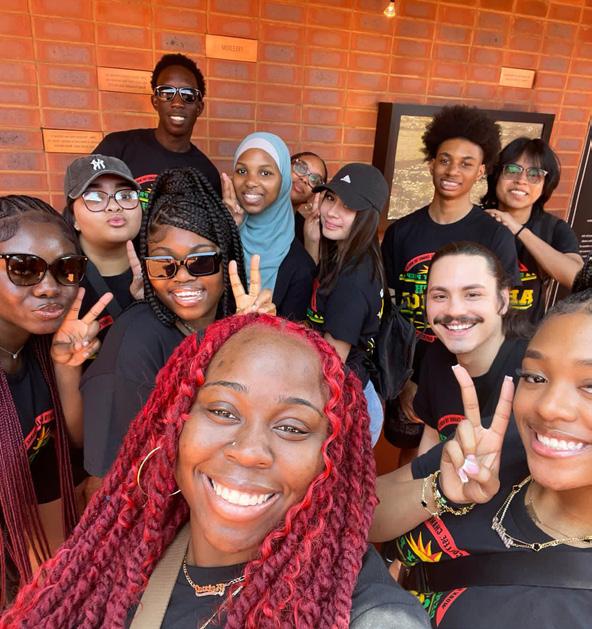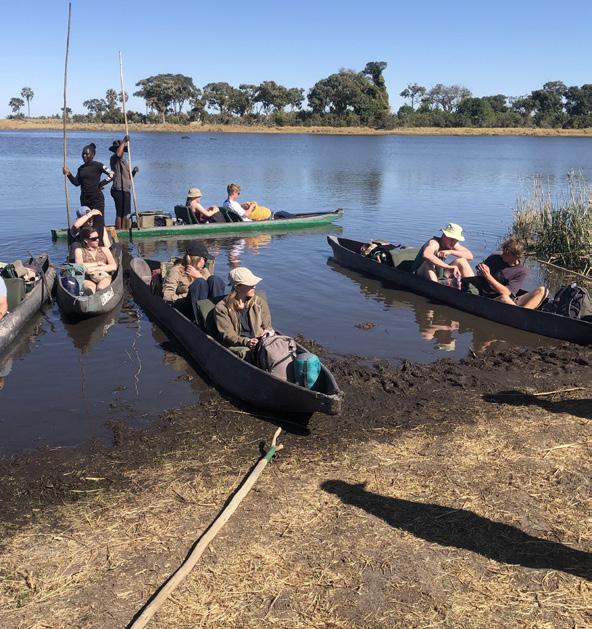








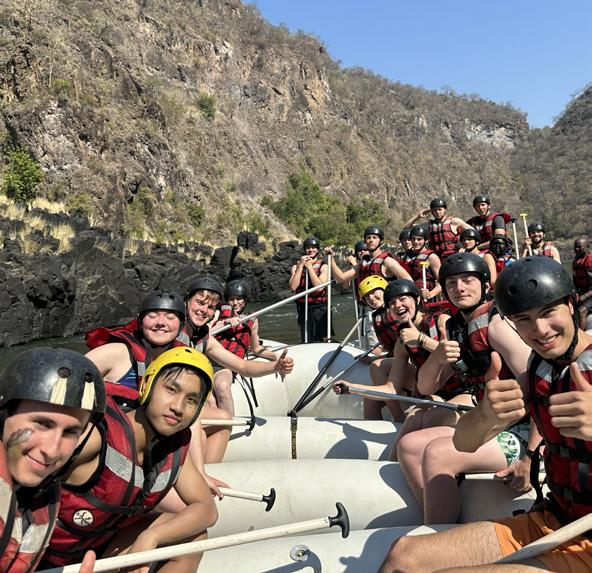
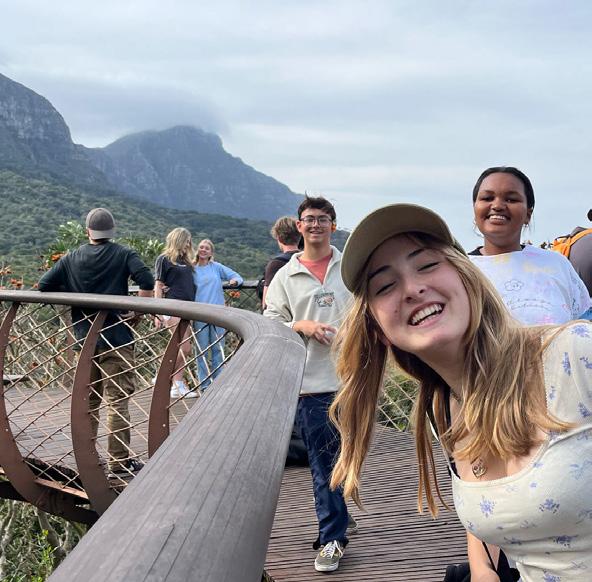
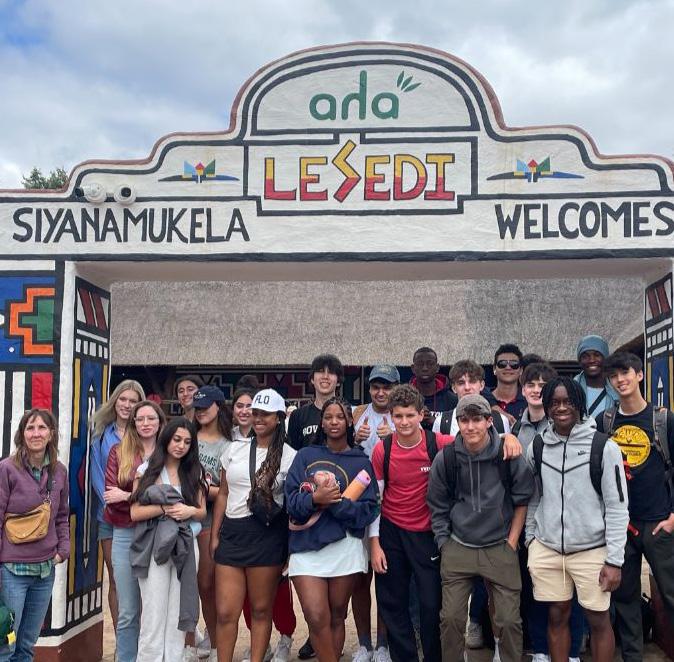
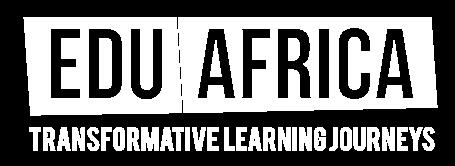
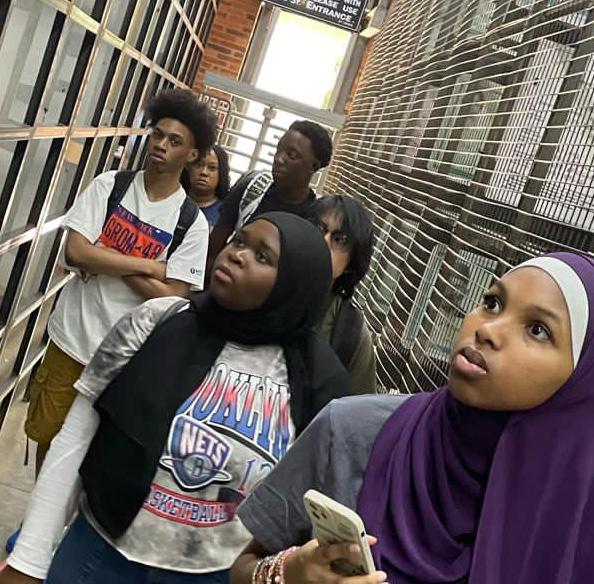
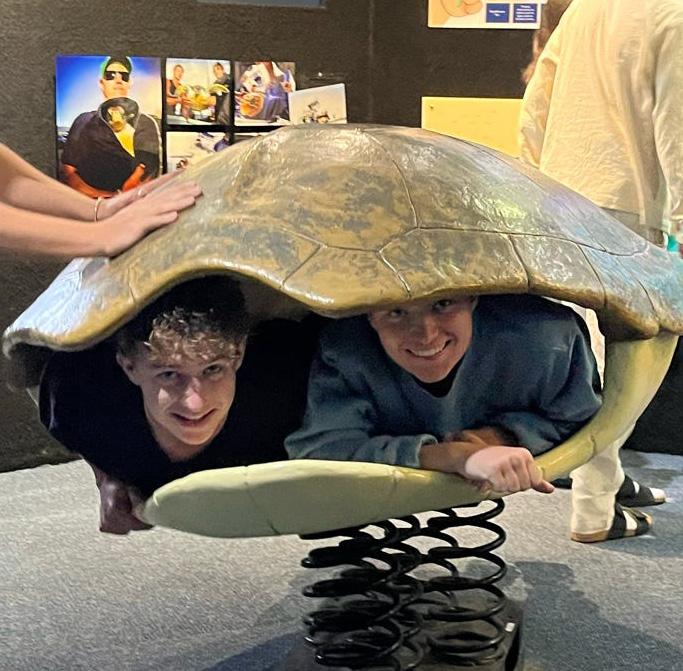
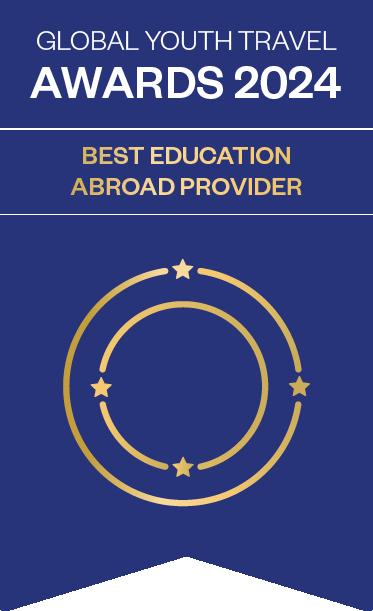
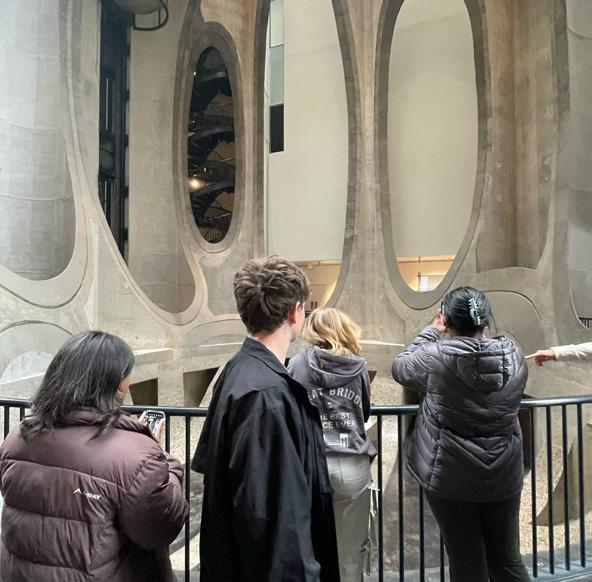
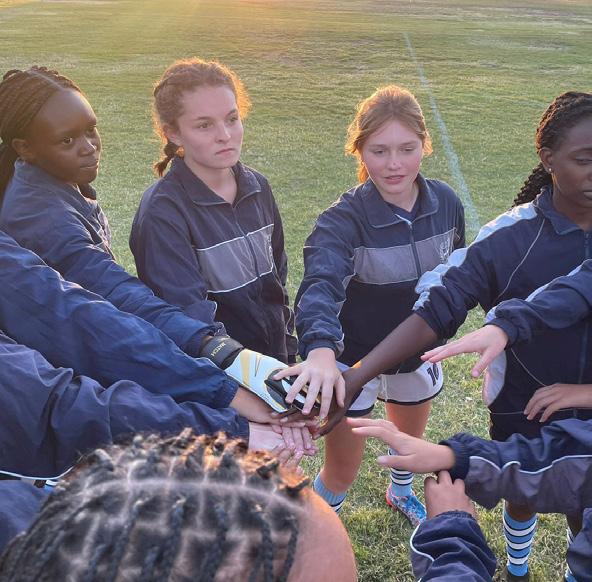
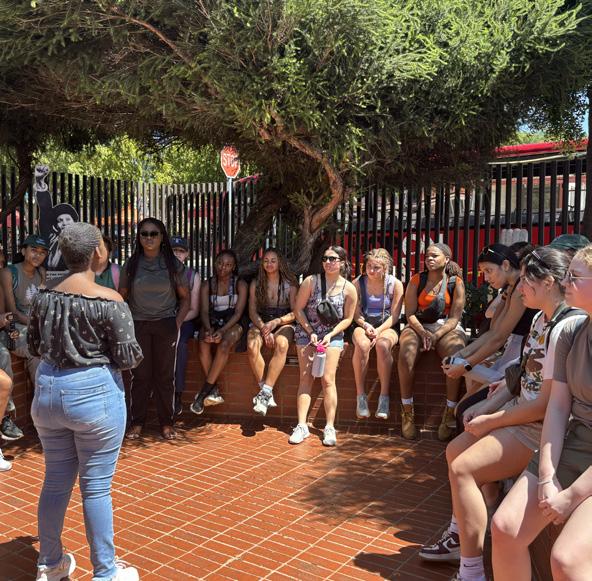
NAMIBIA zambia benin locations
togo ghana
uganda mozambique malawi zimbabwe
BOTSWANA
SOUTH AFRICA
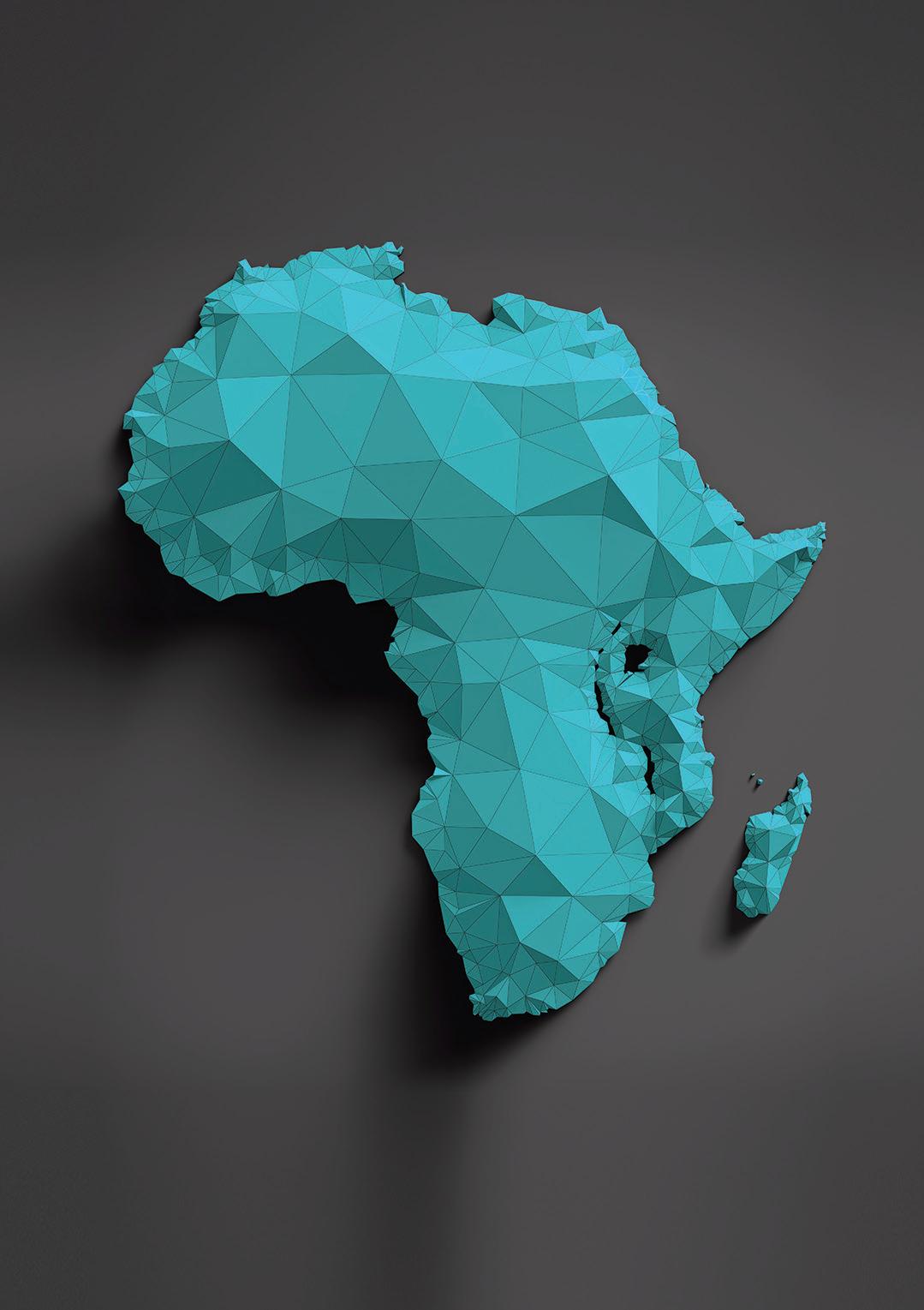
KENYA RWANDA tanzania
Are you ready to unlock the power of transformation for your middle or high school program? EDU Africa invites you to explore a world of opportunities and growth with Transformative Learning Journeys to Sub-Saharan Africa. Our experienced Program Designers will work closely with you to craft a unique experience that not only achieves all your learning objectives but also meets your logistical needs.
At EDU Africa, we know that venturing outside of their comfort zones can often help students gain new perspectives. That’s why our Transformative Learning Journeys focus on five key goal areasIntercultural Competence, Global Citizenship, Personal Growth, Leadership, and Collaboration. As participants experience a range of cultures within this vibrant region of the world, they will develop skills in communication and problem solving that no textbook could ever teach.
Transformation in our Middle and High School programs refers to an augmentation of perspective(s) that can result from venturing outside of one’s comfort zone (whether in-country or virtually).
We see transformation as a holistic process that is achieved when we mark movement across our five goal areas:





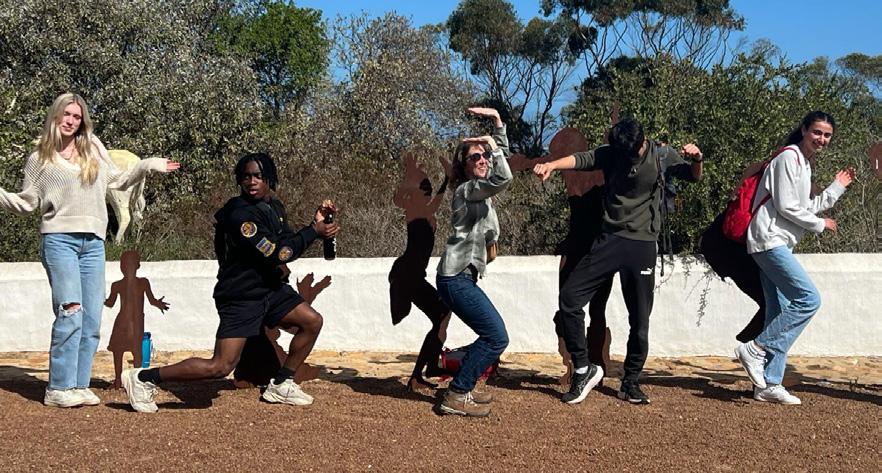
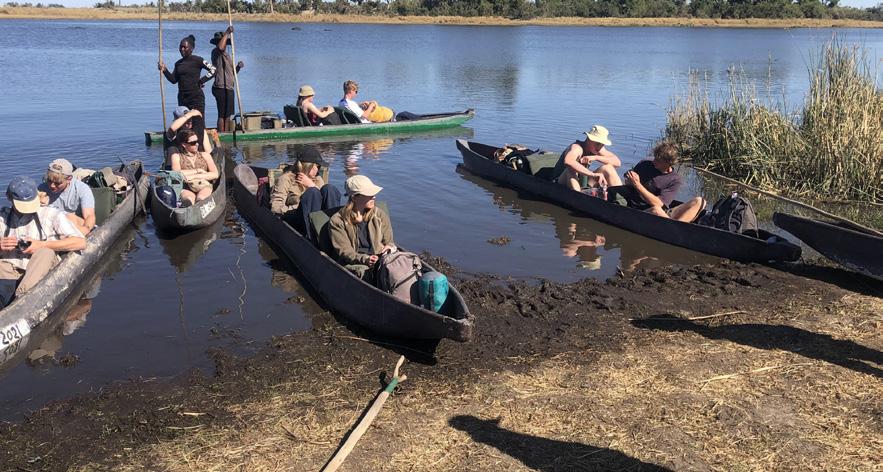
We evaluate our programs’ impact on students by employing a three-part series known as the Schools Transformation Assessment series.
Participants complete the three assessments throughout their program at the start, middle, and near the end. The aim of these assessments is to spark dialogue and engage students with our Transformation Goals and the United Nations’ Sustainable Development Goals (SDGs) that their programs focus on.
Our Schools Transformation Assessment results help us understand how well students are grasping the ideas, experiences, and concepts we’re facilitating, and provide regular opportunities to see how they’re growing.
The final assessment results are compiled into a report for the Group Leader, showcasing the overall results. Additionally, it highlights the progress made toward the United Nations’ Sustainable Development Goals.
The 2024 Schools Transformation Assessment (TA3) data presented a complex picture of growth and development across our five Transformation Goals. By critically assessing these findings, we can refine future programs to meet our students’ evolving needs, fostering a lasting impact.
Find out more about our Transformation Results in our 2024 Academic Reflection Report.
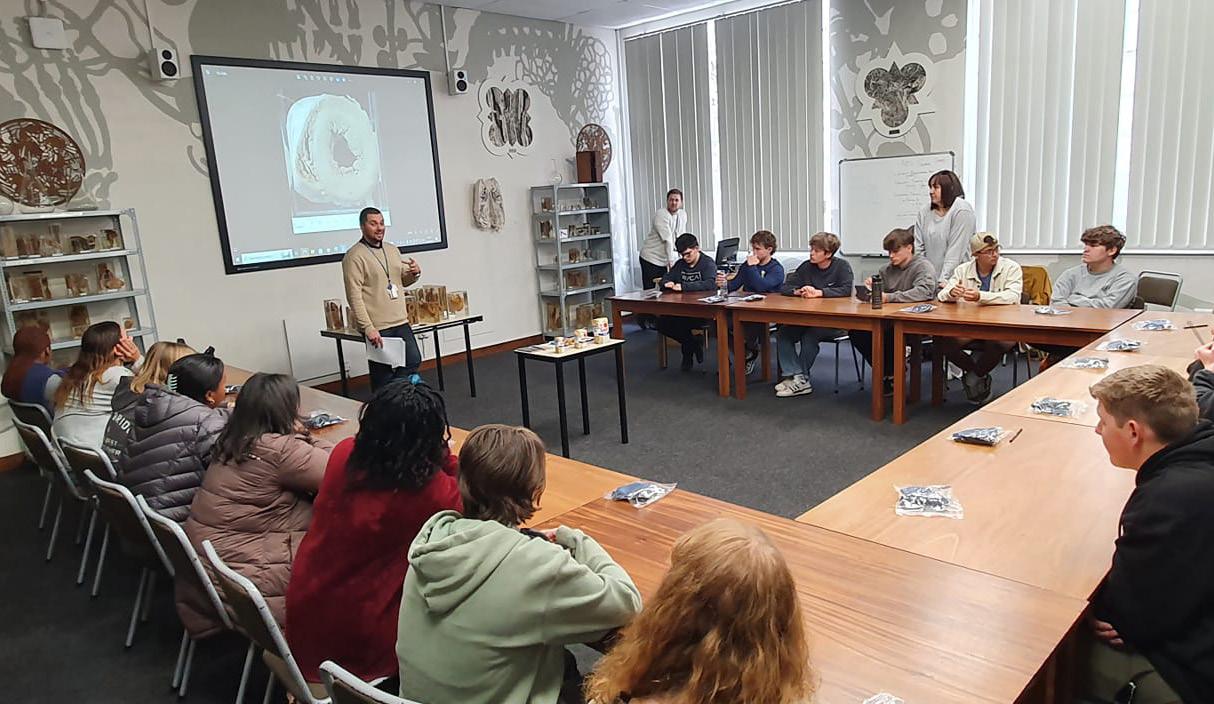

We aspire for students to experience holistic transformation during our programs in Africa. To encourage this, we develop programs that give participants access to experiential learning scenarios, high-caliber industry and academic professionals, and sustainable community initiatives.

We’re committed to using our programs as a platform to amplify and respect the amazing voices, stories, and ideas that are found on the African continent.
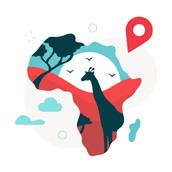
We work from four regional headquarters in Ghana, Kenya, South Africa, and Zimbabwe. We are on the ground where it all happens, giving us the local experience and knowledge to invite you to Sub-Saharan Africa with confidence.

We believe that communication is key, and our Program Designers will guide you through each step of the planning process to compile a unique educational program that meets your expectations. Our professional, qualified Program Facilitators will guide the group with excellence and provide 24-hour on-location support.

With over twenty years of experience in the industry, we have a sound safety and security framework in place to protect our valued participants. We conduct regular in-depth risk assessments in all our locations so that Group Leaders can be well informed and up to date. Our Child Protection Policy is based on the UN Standards for Child Protection.
Want to customize a Middle or High School Program? We thrive on innovation and collaboration with our partners and global clients. Our friendly and experienced Program Designers will assist you in developing your unique Transformative Learning Journey in Africa every step of the way.
1. Get to know us
We would love to set up a call to meet you, discuss your requirements, and tell you more about our approach to Transformative Learning.
2. Request your proposal
Share your ideas, learning objectives, and logistical needs.
3. Review your proposal
After receiving your customized proposal within two to three weeks, we can collaborate and tweak every detail until it meets your exact requirements.
4. Accept your proposal
Once you are 100% happy with your program, we will require a minimum of a 25% deposit to secure your booking. This is refundable up to 75 days before your program starts (less booking cancellation/administration fees).
5. Promote your program
If required, we can support your efforts by providing you with promotional material and presentations or arranging a virtual questionand-answer session to help with student recruitment.
6. Pre-program check-ins
Your dedicated Program Designer will arrange a call to talk through:
● Your program itinerary to clarify details and expectations, and answer any questions
● Health and safety policies and procedures
● Program resources – orientation details, reflection practices, student questionnaires, and reintegration support
7. Final confirmation
Finalize participant numbers, logistical information, and settle outstanding payments.
8. Pre-program preparation
We can arrange a virtual information session to better prepare students for their in-country journey to Sub-Saharan Africa. We’ll share our Student Handbook, which includes vital preprogram information. Students need to complete our Participant Information form and sign our Participant Agreement.
9. Final countdown
You’ll receive the final program itinerary and necessary arrival/sign-up information.
10. Virtual and in-country support
You will be welcomed and supported by your dedicated Program Facilitator for the duration of your program.
11. Post-program
We will share the student transformation results with you and discuss program feedback. Students can also sign up and receive our reintegration support content.
Botswana is widely recognized for its political and economic stability. It is also well-known for its ecological, cultural, and social diversity. Botswana is home to the world’s largest elephant population and features a diverse landscape including savannas, deserts, and wetlands.
The Kalahari Desert and the Okavango Delta (a UNESCO World Heritage Site) define the country’s geography. Botswana’s economy is driven by diamond mining, tourism, and agriculture. Despite challenges, Botswana has made significant strides in development and boasts a high standard of living compared to other African nations.
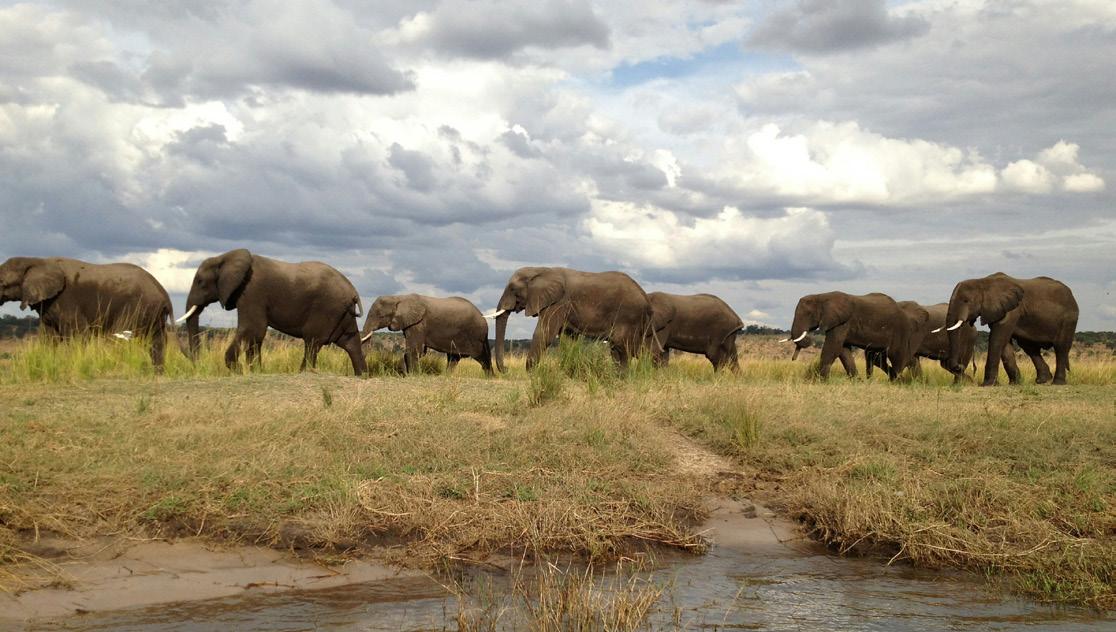
This program introduces students to the complexities of the Okavango Delta. Over the course of nine days, participants will engage in hands-on learning experiences aimed at deepening their understanding of biodiversity and the importance of preserving fragile ecosystems. Students will learn about the diverse array of species that call the delta home. In addition, they’ll also gain insights into innovative strategies being employed to protect the Delta’s delicate balance and the challenges facing conservation efforts in the region.
Destination: Botswana
Number of days: 9
Significant site visits: Okavango Delta, Chobe National Park, Moremi Game Reserve
Students will explore the dynamic economic landscape of Botswana, a country known for its stable governance, diverse industries, and thriving wildlife tourism sector. Through engaging seminars, interactive workshops, and field trips, students will explore the topics of resource management, sustainable development, and entrepreneurship. During the program, students will visit diamond mines to understand the significance of natural resources, meet with local entrepreneurs to learn about business innovation, and go on excursions to wildlife reserves to grasp the economic impact of ecotourism.
Destination: Botswana
Number of days: 14
Significant site visits: Orapa Diamond Mine, Serowe Craft Centre, Khama Rhino Sanctuary, Letlhakane Diamond Mine, Pilikwe Pottery
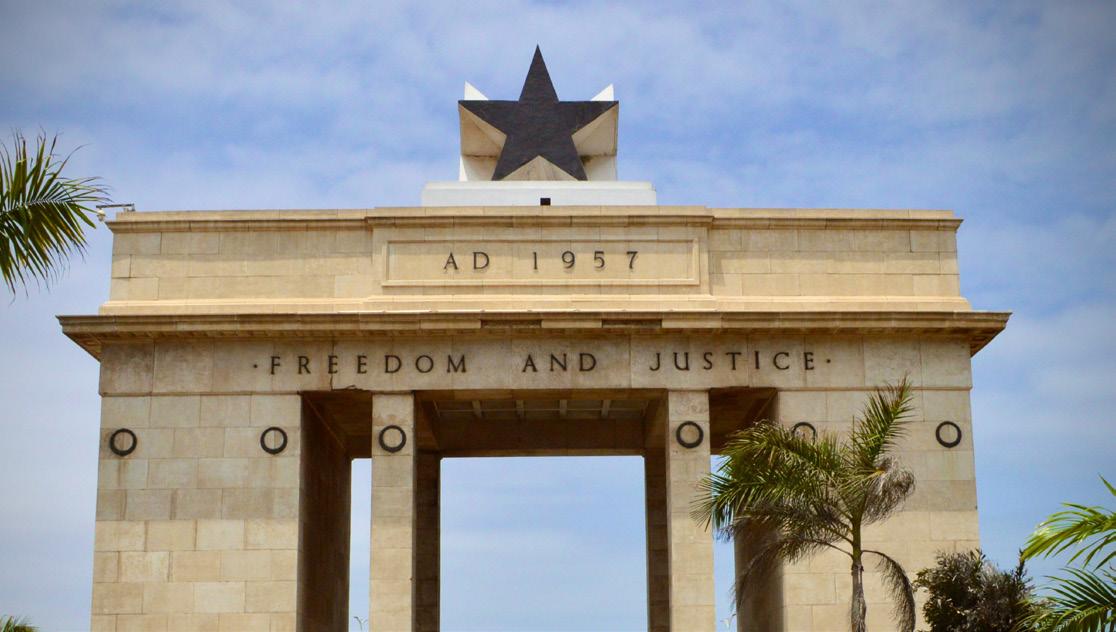
Currents of Globalization takes students on a journey through Ghana’s incredible history with trading ports and seeks to highlight the significance of ports being gateways for domestic and international trade that essentially connects Ghana to the world. Students will participate in a range of experiential activities exploring trade routes, the global supply chain (what is manufactured locally and exported), and how these affect the local Ghanaian economy, environment, and people.
Destination: Ghana
Number of days: 15
Significant site visits: Osu Castle, Manhiya Palace, Tema Port and Harbour
Students will embark on a transformative learning journey through the heartland of Ghana, where they will learn, create, and perform alongside local artists and musicians. From energetic drumming workshops led by master percussionists to engaging dance classes showcasing traditional movements and storytelling, participants will gain a deeper appreciation for the role of music and dance in Ghanaian society.
Destination: Ghana
Number of days: 10
Significant site visits: Cape Coast Castle, Ashanti Kingdom’s royal palaces
Ghana is named after the Ghana Empire, founded by the Akan Ethnic group in the 13th century. The empire was known for its wealth in gold and had extensive trade with the Portuguese, Dutch, and English. In 1957, Ghana gained independence from British colonial rule, led by Kwame Nkrumah.
The country has about 50 indigenous languages, with Akan, Ewe, Ga, Dagaare, and Dagbani being the main languages, and English as the official language.
Kenya, located in East Africa, is renowned for its beautiful landscapes and extensive wildlife reserves. Kenya’s rich human history dates back numerous years, encompassing the Nilotic and Bantu migrations, and the arrival of Arab traders on the coast in the first century AD.
Kiswahili, one of the country’s official languages, has Bantu and Arabic roots; English, the second official language, is a vestige of its colonial past. Kenya has a rapidly growing economy, relying heavily on tourism for revenue, and is renowned for its safari experiences and the great Wildebeest migration shared with Tanzania.
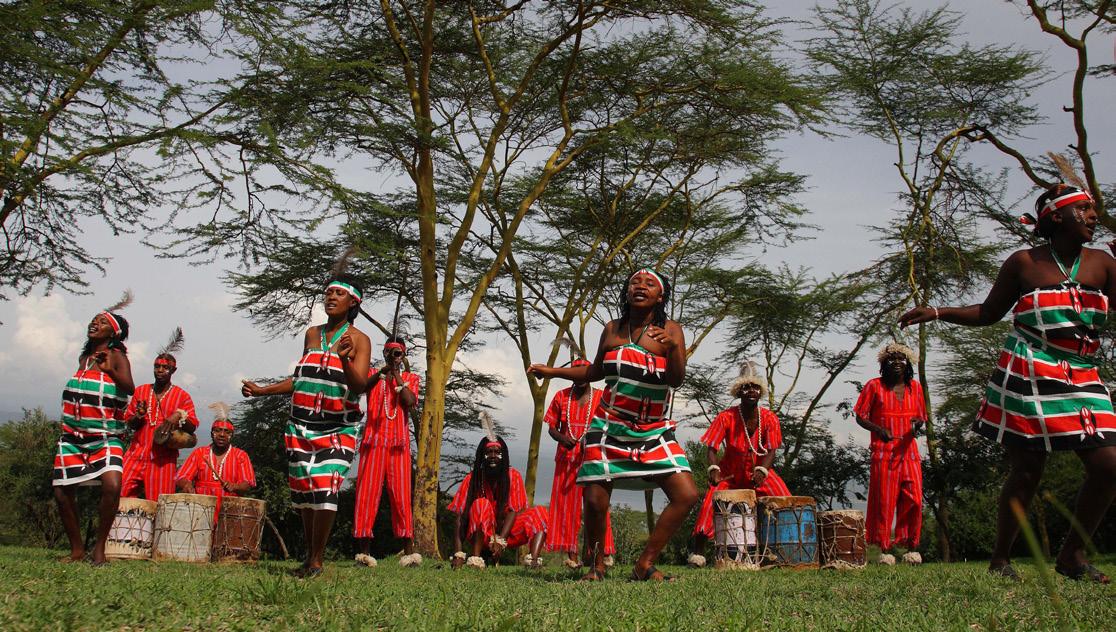
This program explores the diverse cultural practices, languages, and artistic models represented in Kenya. Students will engage with artists (dancers, acrobats, painters, puppet makers, etc.) and participate in a host of immersive activities to help them develop an awareness of the many hues and resonances of Kenyan cultural and social diversity.
Destination: Kenya
Number of days: 12
Significant site visits: Banana Art Gallery, Sarakasi Dome, Nairobi National Museum, Kazuri Bead Factory, Bomas of Kenya, Kenya National Theatre, Shujaaz Inc., Helen O’ Grady Drama Academy, Kenya Institute of Puppet Theatre, Maasai Market
ecology
A Journey of Sustainability is designed to teach students about the critical concepts of conservation and ecology in Kenya. Over the course of ten days, students will learn about the country’s biodiversity hotspot, gaining firsthand knowledge about wildlife conservation efforts and sustainable practices. Through workshops, guided nature safaris, and interactions with local experts, students will develop a deep appreciation for Kenya’s rich ecosystems and the importance of preserving them for future generations.
Destination: Kenya
Number of days: 10
Significant site visits: Maasai Mara National Reserve, Amboseli National Park, Pardamat Wildlife Conservancy, Nairobi National Park
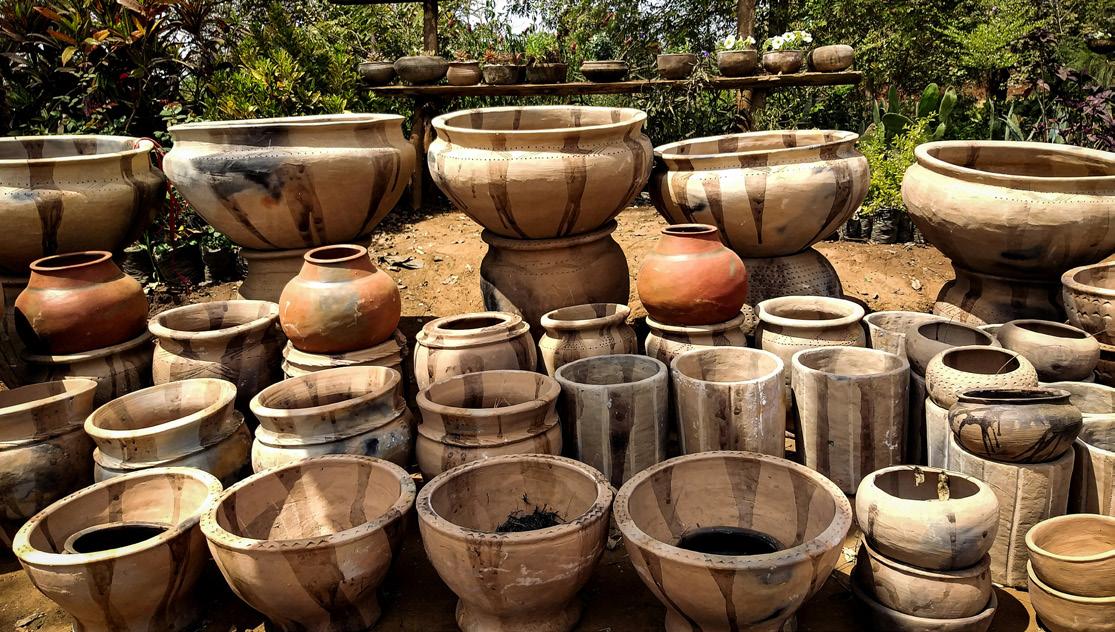
This program is designed to celebrate the vibrant blend of traditions and heritage that define this nation. Students will have the opportunity to familiarize themselves with the rich and diverse cultures of Malawi, forging connections with local communities and gaining invaluable insights into their ways of life. From the rhythmic beats of traditional drumming to the colorful displays of dance and storytelling, every moment promises to be a celebration of authenticity and unity. Through these experiences, students will be encouraged to self-reflect and consider and appreciate their own multifaceted cultural identities.
Destination: Malawi
Number of days: 10
Significant site visits: Lilongwe and Blantyre markets, Likoma Island, St. Peter’s Cathedral
Empowering Tomorrow’s Leaders is aimed at nurturing the potential of young women and fostering their leadership skills. Through interactive workshops, mentorship sessions, and community outreach programs, participants will gain invaluable insights into gender equality, entrepreneurship, and education in Malawi.
Destination: Malawi
Number of days: 10
Significant site visits: The Jacaranda Cultural Centre, The Story Workshop Educational Trust, The Lilongwe Wildlife Centre
Malawi, known as the “Warm Heart of Africa,” is home to Lake Malawi, a UNESCO World Heritage Site and one of Africa’s largest freshwater lakes. The country boasts beautiful landscapes with diverse flora and fauna.
Like many countries, Malawi faces challenges such as poverty and healthcare disparities, but it is a resilient nation committed to sustainable development and wildlife conservation. Malawi’s rich cultural heritage is showcased through unique traditional music, dances, and festivals, making it a versatile place to learn about numerous disciplines.
Mozambique has a rich history that combines indigenous traditions with colonial influences. The country, located on the beautiful eastern coast of Africa, has encountered various challenges such as poverty, political instability, and occasional natural disasters.
Despite these difficulties, Mozambique is making progress in economic development and infrastructure enhancement, particularly focusing on the agricultural, tourism, and energy sectors. The cultural landscape of Mozambique reflects a mix of African, Portuguese, and Arabic traditions, evident in its music, dance, cuisine, and festivals.
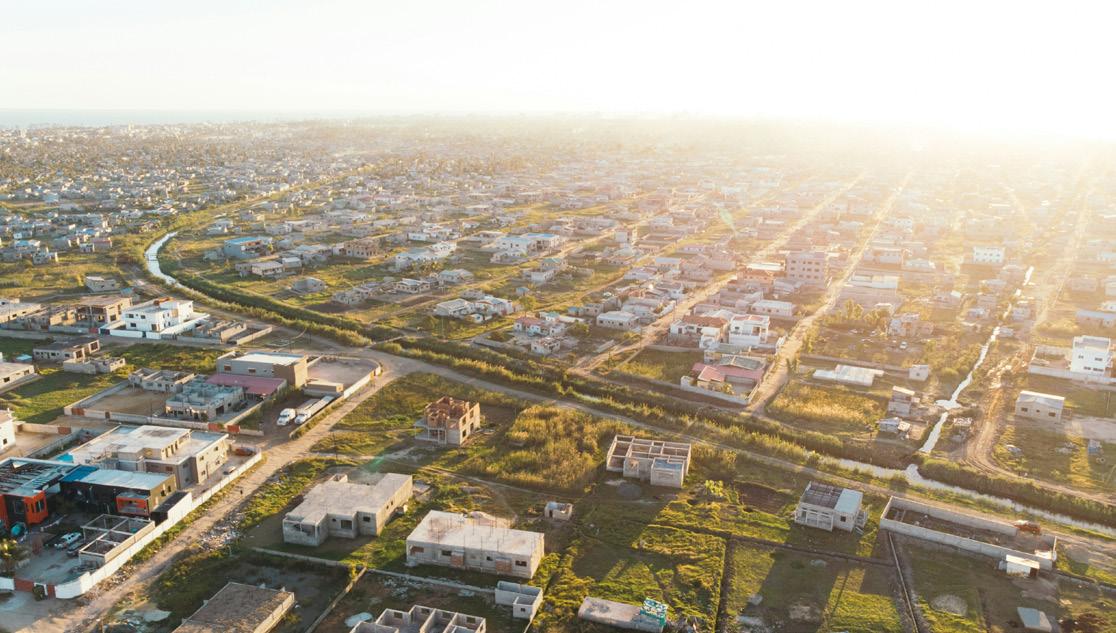
This program explores Mozambique’s rich history, focusing on its storied harbors and stunning coastline. Students will have the opportunity to learn about the country’s maritime heritage that has shaped the nation’s identity. From ancient trading ports to colonial legacies, participants will uncover the intricate tales of Mozambique’s coastal past, discovering the intersections of culture, commerce, and conquest.
Destination: Mozambique
Number of days: 7 days
Significant site visits: Island of Mozambique, Maputo Waterfront, Fortaleza de São Sebastião
Embark on a transformative learning journey through Mozambique’s vibrant culture and rich heritage, where history intertwines with modernity, and Portuguese influence weaves through the fabric of society. Through interactive workshops, engaging lectures, and exciting field trips, participants will gain a profound understanding of Mozambican traditions, customs, and ways of life, and how they have been shaped by centuries of Portuguese colonization. From the rhythmic beats of traditional music to the colorful displays of local art and craft, students will have the opportunity to explore the diverse cultural tapestry that defines Mozambique.
Destination: Mozambique
Number of days: 8
Significant site visits: Island of Mozambique, Maputo Central Market, Fortress of Maputo

This program is centered on conservation efforts and environmental stewardship. Students will have the opportunity to engage in conservation initiatives while exploring Namibia’s breathtaking landscapes and diverse ecosystems. Through hands-on conservation projects, guided wildlife monitoring excursions, and interactive workshops led by experts in the field, students will gain insights into the challenges facing Namibia’s fragile ecosystems and the innovative strategies employed to protect them.
Destination: Namibia
Number of days: 8 days
Significant site visits: Damaraland, Kunene Region, NamibRand Nature Reserve
Embark on a transformative learning journey through time, where students will uncover Namibia’s rich history and heritage. Students will learn about the country’s diverse past, from ancient civilizations to colonial rule and the struggle for independence. Guided by knowledgeable historians and local experts, students will visit key historical sites, museums, and cultural landmarks, gaining deep insights into the forces that have shaped the nation.
Destination: Namibia
Number of days: 8
Significant site visits: The Namib Desert, Twyfelfontein, The National Museum of Namibia, The Heroes’ Acre
The name “Namib” means “place of no people,” reflecting the harsh and barren conditions of the Namib Desert. Much of the country is covered by the Namib and Kalahari deserts, which feature spectacular dunes, vast gravel plains, and mountains. Despite its barren appearance in most places, Namibia is home to a diverse array of wildlife. After many decades of German colonial rule and control under the South African Apartheid regime, Namibia won its independence in 1990.
Several indigenous tribes including the San, Damara, Nama, Herero, Himba, and Ovambo occupy the land. A small percentage of the population is of European (predominantly German) origin, and there is also a significant number of South Africans living in the country. Namibia relies heavily on mining activities and tourism, with visitors coming to experience the vast desert landscapes and exceptional wildlife.
The region that is now Rwanda was once divided into small kingdoms, but eventually, one powerful kingdom emerged to consolidate control over the area. Later, the region was colonized by Germany and then by Belgium. This colonization led to tensions and divisions between the major ethnic groups in Rwanda.
These tensions reached a boiling point, resulting in the 1994 genocide against the Tutsi population, and the collapse of the country. However, Rwanda has managed to rebuild itself and is now considered one of the fastest-growing economies in Africa. Despite this, a significant portion of the population still lives in poverty. The government is committed to growth and development strategies to improve the state of the country.
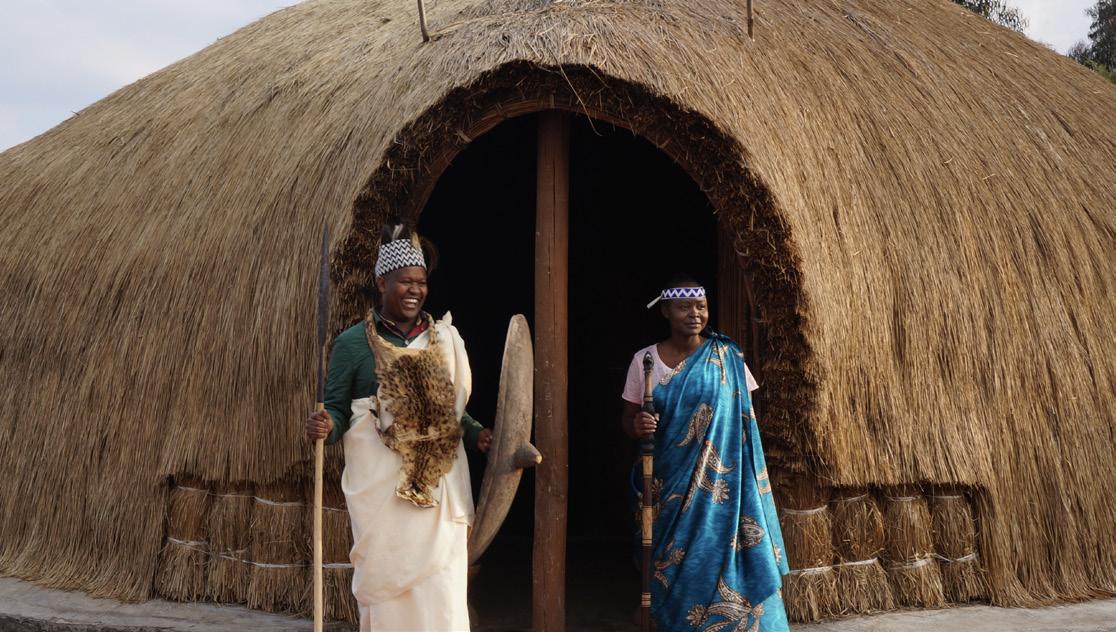
This program immerses students in Rwanda’s past. It looks into the events that have shaped its history. Included are visits to memorial sites which provide a firsthand look at the trauma of the genocide against the Tutsi people. Through interactions with members of the local community and organizations, students will gain insight into how human connections, both positive and negative, form the basis of our societies and structures.
Destination: Rwanda
Number of days: 12
Significant site visits: Kigali Genocide Memorial Museum, Kandt Museum, Parliarment Genocide Memorial, Ntarama Church, Nyamata Genocide Memorial, Ministry of National Unity, Gisimba Genocide Memorial
Students will have the opportunity to delve into the heart of Rwanda, gaining insight into its resilient spirit and rich cultural tapestry. Through engaging workshops, interactive lectures, and firsthand experiences, participants will uncover the stories of Rwanda’s past and present, from ancient traditions to modernday innovations.
Destination: Rwanda
Number of days: 10 days
Significant site visits: Kigali Genocide Memorial, Nyanza Royal Palace, Ethnographic Museum of Rwanda
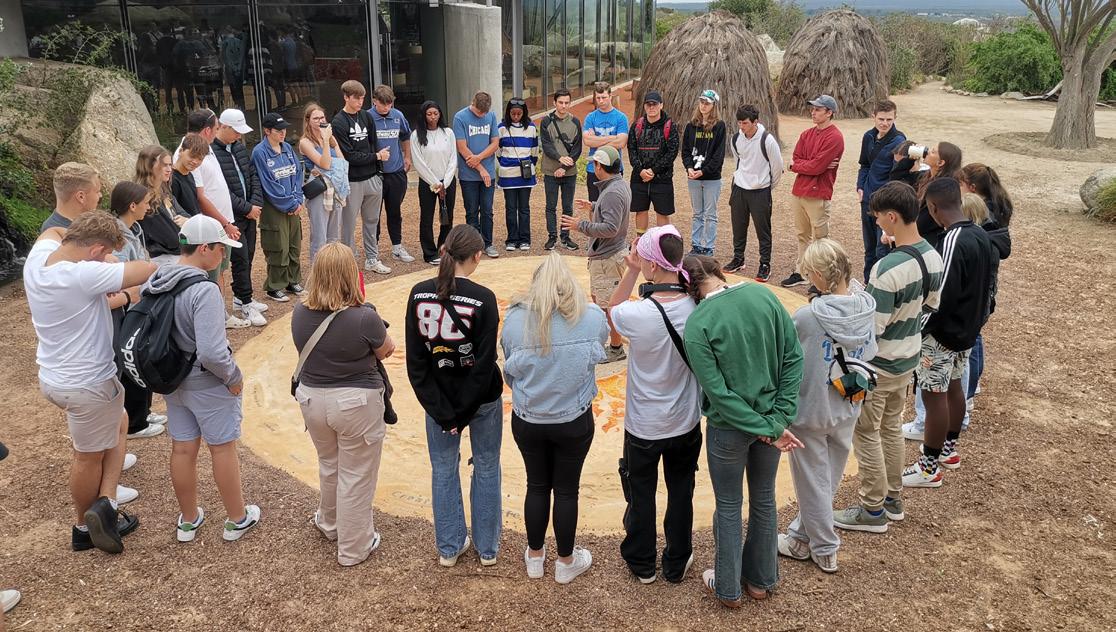
When one considers that South Africa is home to the Cradle of Humankind, it’s not hard to envision African power as a tree in the bushveld with multiple branches reaching out up to the beating sun. As a theme, Branches of Power explores local and global power dynamics in light of four topics: South African ethnic groups, animals in the African wilderness, the power crisis and rolling blackouts in South Africa, and the power of art through the eyes of South African artists.
Destination: South Africa
Number of days: 12
Significant site visits: Soweto Township, Nelson Mandela Heritage Site, Lesedi Cultural Village, Timbavati Game Reserve, Koeberg Power Plant
This program is focused on exploring the country’s tumultuous history, particularly the apartheid era. Students will explore the complexities of South Africa’s past, engaging in meaningful discussions and experiences to gain insight into the effects of apartheid and the ongoing process of reconciliation and social transformation. Students will confront the harsh realities of apartheid while also learning about the resilience and strength of the South African people.
Destination: South Africa
Number of days: 10 days
Significant site visits: Apartheid Museum, Mandela House, Hector Pieterson Memorial and Museum, Constitution Hill
As its name suggests, South Africa is situated on the southernmost tip of Africa. The country is known for its long struggle against Apartheid, which ended in 1994. Its history is complex, including interactions between indigenous societies and diverse migrations.
Like many African countries, South Africa is home to various people groups, cultures, and religious beliefs, earning it the nickname “Rainbow Nation”. Geographically rich and varied, it encompasses eight different biomes and a wide range of plant, mammal, and bird species.
The United Republic of Tanzania was formed in 1964 by the merger of Tanganyika on the African mainland and the island of Zanzibar when they gained independence from German and British colonial rule. Before that, mainland Tanzania was home to nomadic huntergatherers, settled farmers, cattle herders, migrant Bantu-speaking people, and Asian and Arabic-speaking traders.
Today, Tanzania’s population consists of various African people groups, primarily of Bantu descent, as well as Asian and European minority groups, reflecting its rich cultural diversity. The country is also home to natural wonders such as Mount Kilimanjaro, the world’s highest freestanding mountain peak, and the Serengeti plains.
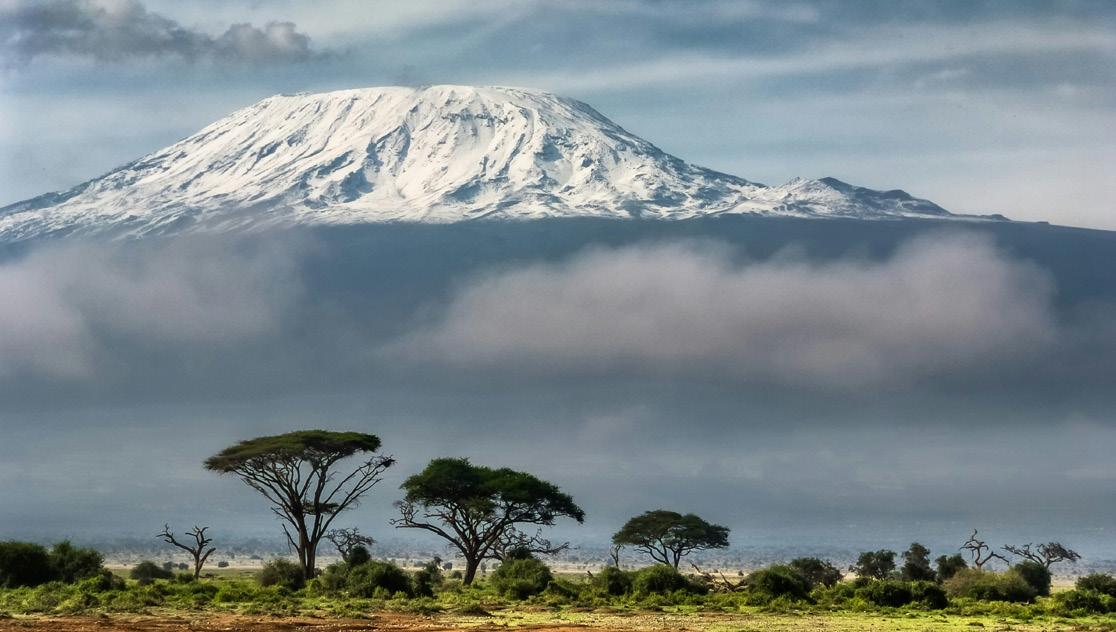
Embark on an unforgettable educational adventure with our school program to Tanzania, where students will be immersed in the country’s breathtaking natural environment. From the iconic plains of the Serengeti to the majestic heights of Mount Kilimanjaro, Tanzania offers a diverse array of ecosystems and wildlife. Through guided excursions, interactive workshops, and hands-on experiences, participants will gain a deeper understanding of conservation efforts, biodiversity, and the interconnectedness of ecosystems.
Destination: Tanzania
Number of days: 12 days
Significant site visits: Serengeti National Park, Ngorongoro Conservation Area, Tarangire National Park
Exploring Linguistic Diversity exposes students to the fascinating world of languages and education. Participants will learn about the rich linguistic diversity of Tanzania, learning about its various indigenous languages and their cultural significance. Through interactive sessions and cultural exchanges, students will gain a deeper understanding of the importance of language preservation and multilingualism in fostering inclusive societies. Additionally, the program will offer insights into Tanzania’s education system, highlighting both its successes and challenges in promoting access to quality education for all.
Destination: Tanzania
Number of days: 12 days
Significant site visits: University of Dar es Salaam, Maasai Village Cultural Experience, Zanzibar Stone Town
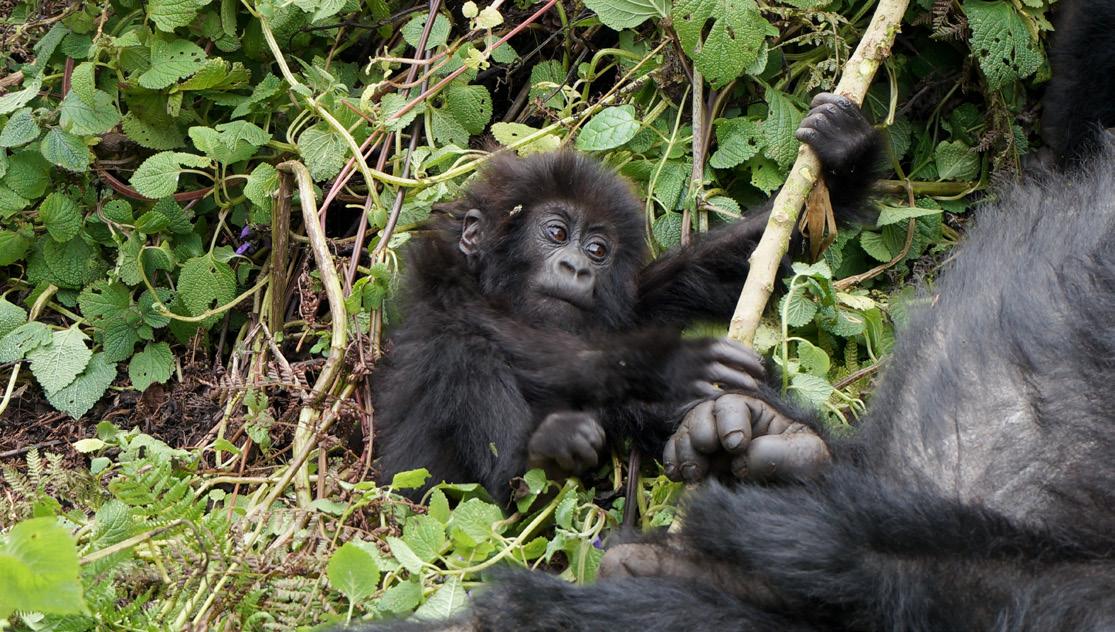
This program focuses on Global Health and Public Policy in Uganda. Students will explore the intersection of health and governance, examining Uganda’s healthcare system, policies, and challenges. Through site visits to healthcare facilities, government agencies, and grassroots organizations, participants will gain firsthand insights into the complexities of health policy implementation and the role of stakeholders in promoting community well-being.
Destination: Uganda
Number of days: 14 days
Significant site visits: Mulago Hospital, Uganda Ministry of Health, Community Health Initiatives
Promoting Peace and Building Bridges delves into the vital theme of peace and conflict resolution. The program offers students a unique opportunity to explore the complexities of conflict dynamics and the strategies employed for peacebuilding in the diverse and historically turbulent region. Through interactive workshops, engaging discussions, and field experiences, participants will gain insights into the root causes of conflicts, the role of reconciliation processes, and the importance of fostering sustainable peace. Students will engage in meaningful exchanges with local peacebuilders, community leaders, and grassroots organizations, fostering cross-cultural understanding and solidarity.
Destination: Uganda
Number of days: 14 days
Significant site visits: Gulu District, Jinja Source of the Nile, Kampala Peace and Conflict Resolution Center
Not much is known about the detailed history of early settlement in the landlocked country of Uganda. However, it was mostly populated via two waves of migration, first by Bantu-speaking and then by Nilotic-speaking peoples.
Uganda comprises the formerly separate kingdoms of the Bunyoro, Buganda, Busoga, Ankole, and Toro. The country has a plethora of possible educationally enriching programs to offer.
Zambia gets its name from the Zambezi River which flows through it and makes up part of its southern border with Zimbabwe. Zambia’s population is largely concentrated in developed areas where mining and manufacturing occur.
Most of the country comprises conservation projects, national parks, and game management areas that are untamed and pristine. Tourism is a big contributor to the country’s economy, while much of Zambia’s population inhabits rural areas and relies on subsistence farming.
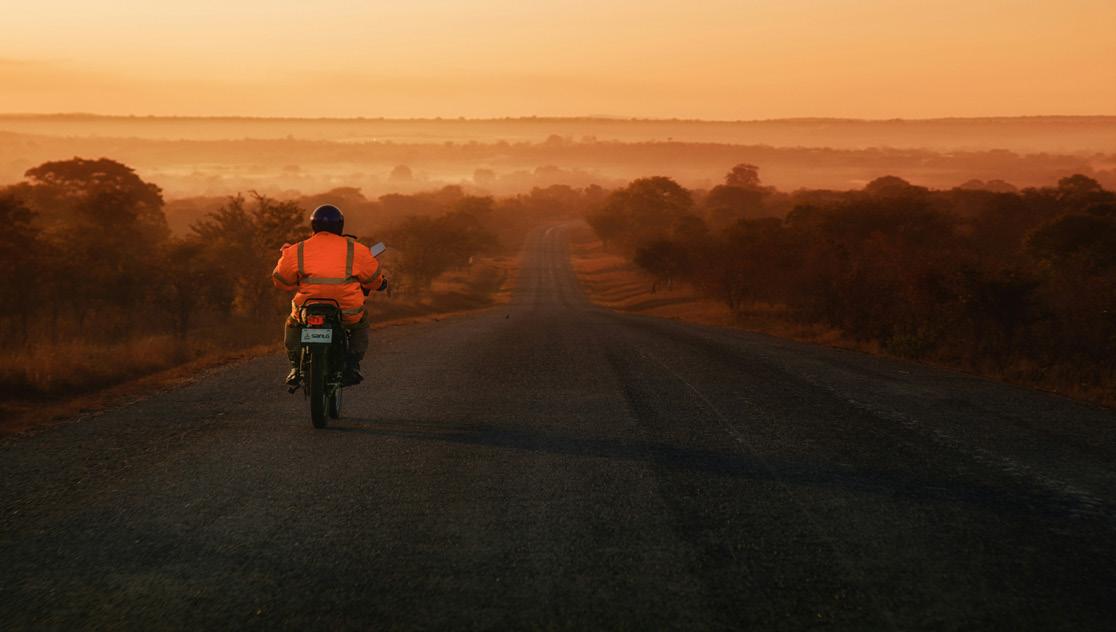
This program explores Zambia’s rich history and dynamic political landscape. Students will delve into the depths of the country’s past as we trace its journey from pre-colonial times to present-day nationhood. Engagements with local historians and experts will help to unravel the complexities of Zambia’s historical narratives, including the legacy of indigenous kingdoms, the impact of British colonialism, and the struggle for independence. Participants will learn about contemporary political discourse as we analyze the democratic governance structures and key political figures shaping Zambia’s future.
Destination: Zambia
Number of days: 10
Significant site visits: Livingstone Museum, Independence Avenue, Lusaka National Museum
This program will provide students with valuable insights into the complexities of sustainable development and the role of social entrepreneurship in driving positive change. Participants will engage in interactive workshops, field visits, and hands-on projects aimed at addressing pressing social and economic challenges in Zambia. From exploring innovative solutions to poverty alleviation to collaborating with local communities on grassroots initiatives, students will gain practical skills and a deeper understanding of the intersection between business, social impact, and community development.
Destination: Zambia
Number of days: 14 days
Significant site visits: Kalingalinga Township, Lusaka Impact Hub
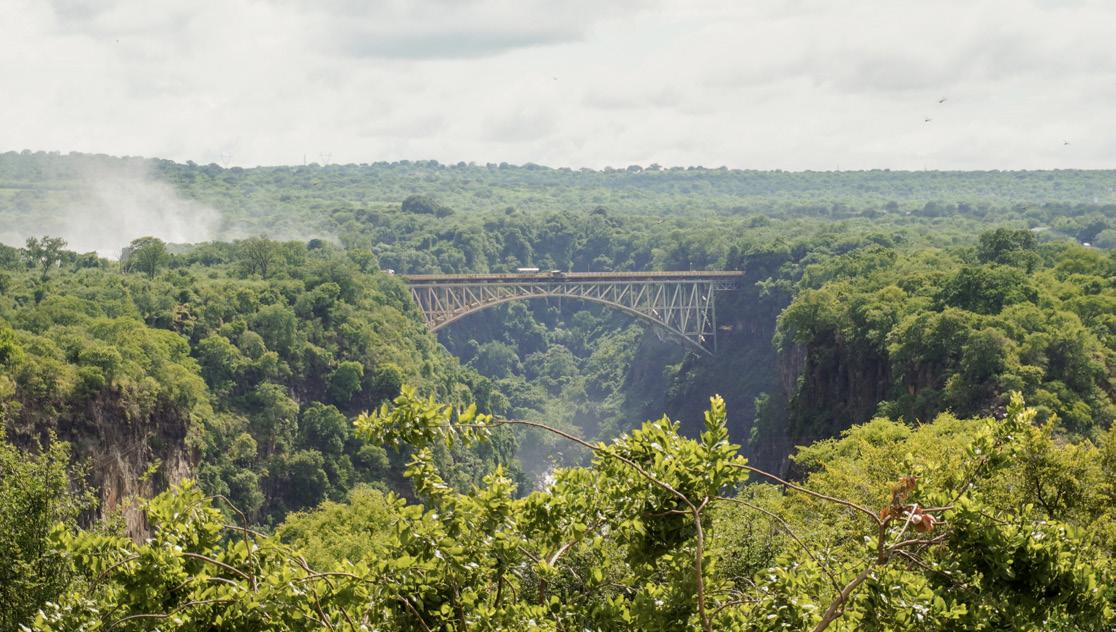
Exploring the wonders of nature allows students to recognize not only the astounding beauty and intricacy of their natural environments but also their responsibilities within and towards them. In this program, students will learn about the local ecology of Zimbabwe, tackling concepts such as conservation and sustainable development, health and hunger, as well as social responsibility.
Destination: Zimbabwe
Number of days: 14
Significant site visits: Matobo National Park, Victoria Falls, Chobe National Park
Centered around the country’s vibrant cultural heritage, students will have the opportunity to learn about Zimbabwean traditions, history, and arts, with the stunning Victoria Falls as a backdrop. Through interactive workshops, and engaging intercultural exchanges, students will gain a profound appreciation for the diverse cultures that call Zimbabwe home.
Destination: Zimbabwe
Number of days: 9
Significant site visits: Victoria Falls National Park, Cultural village tours, Craft markets and artisan workshops, Local community engagement initiatives
Zimbabwe is a landlocked country that was once home to a prolific and prosperous medieval kingdom in subSaharan Africa. It was colonized by the British in the late 1800s and gained its independence in 1980. Its name is loosely translated as ‘house of rock/ stone’ and is an anglicized version of the Shona language descriptions, dzimba dzemabwe meaning ‘great stone houses’ or dzimba woye meaning ‘esteemed houses’. Ruins of such stone structures can be seen today at the Great Zimbabwe National Monument which is a UNESCO World Heritage site. The country has endured both socio-economic and environmental challenges. However, despite these hardships, Zimbabweans have shown immense innovation and resilience.
Professional Development programs provide an opportunity for educators seeking to enhance their intercultural skills and prepare to lead international education programs. Through immersive cultural experiences, critical reflection sessions, and exploration of historical and social justice issues, participants will deepen their understanding of their chosen region’s rich heritage and contemporary challenges, better equipping themselves to design and lead educational programs in that area. The proposed learning outcomes for Professional Development programs encompass the following topics.
Gain comprehensive knowledge of international education opportunities in the chosen region, including logistics, risk management, curriculum design, and student mental health issues, empowering you to lead and manage transformative international education programs for your students.
Deepen your understanding of the country’s diverse cultures, complex history, and contemporary social landscape through immersive experiences and critical reflection sessions. This enhanced cultural sensitivity will equip you to design and lead impactful programs that foster meaningful cross-cultural engagement and critical thinking in your students.
Through explorations of historical sites, engagement with local communities, and exposure to innovative school practices, gain valuable insights and resources to enhance your teaching practice and curriculum design. This program will spark your creativity and equip you to integrate global learning experiences into your curriculum, promoting global citizenship in your students.
EDU Africa offers site visits and scouting opportunities for educators interested in running educational programs in Africa. These experiences allow educators to see firsthand what the program will look like on the ground before bringing students.
Participating in these scouting opportunities and site visits enable educators to expand their knowledge, critically evaluate international education options, and feel more prepared to run and lead transformative education programs in Africa.
We invite you to engage with Online Global Learning (OGL), where international borders are interrogated and collaboration thrives as students connect from across the world in a dynamic online environment. Our approach to virtual exchange is deeply rooted in transformative learning theory, which emphasizes critical reflection, relationship building, and perspective change(s) to encourage learning for impact.
Unlike traditional COIL programs, each OGL program is customized guided by specific learning outcomes and can include a broad range of curricular or co-curricular global learning experiences that happen partially or completely online. Think live virtual classrooms, interactive peer-to-peer dialogues with Africa-based student partners, conversations with guest experts from across the continent, collaborative projects, guided reflections, and more.
By designing these programs with a base in Africa, we aim to foster a world of collaborative experiential learning where students actively engage with knowledge-sharing, develop intercultural understanding, and exchange their diverse perspectives. Online Global Learning enables students and faculty to develop digital literacy, collaboration, and global competence skills, regardless of their location.
Online Global Learning involves:
● Sustained discussion, collaboration, and exchange
● Exploration and active participation
● Structured facilitation
● Project-based learning, service learning and/or community engagement (depending on the nature and length of the program)
● Reflection
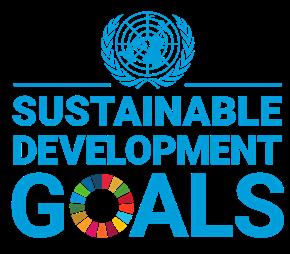
As an organization committed to transforming lives in Africa, we at EDU Africa ensure that our programs integrate the United Nations’ 17 Sustainable Development Goals (SDGs) in various ways to positively impact both the communities we serve and the students we host.
EDU Africa prioritizes community partner engagement and building relationships with local organizations to benefit the communities it works in. We are committed to ethical participant engagements, are guided by our partners’ needs and requests, and collect feedback to ensure our engagements meet ethical standards and benefit our partners.
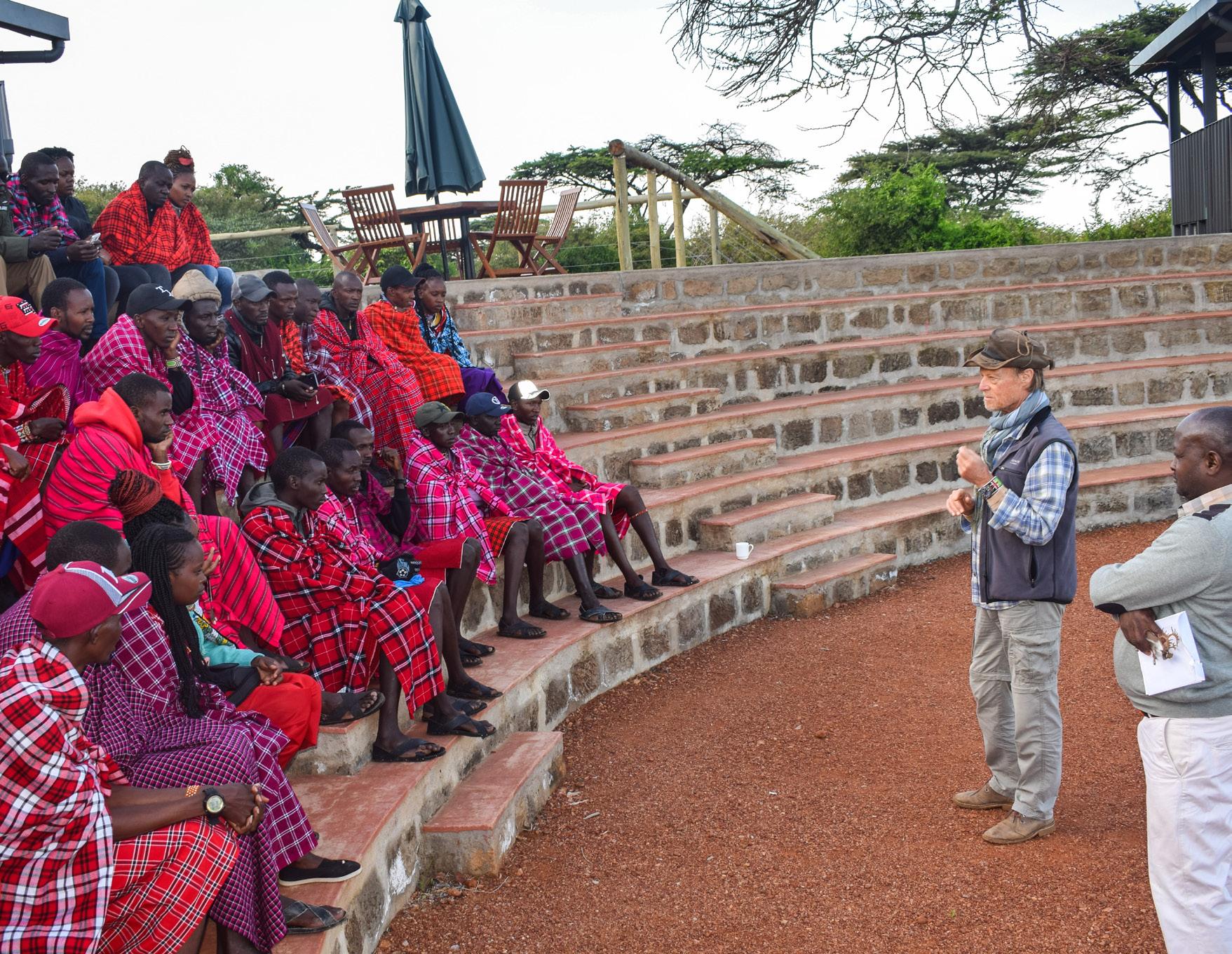
The Maasai Mara is a vibrant ecosystem renowned for its breathtaking landscapes, rich biodiversity, and deep-rooted Maasai culture. Situated in southwestern Kenya, it spans over 1,500 square kilometers of savanna, grassland, and riverine forests. The region is renowned for its annual Great Migration, where thousands of wildebeest, zebras, and other herbivores traverse the landscape, attracting a plethora of predators and creating one of nature’s most dramatic spectacles.
The Wildlife Tourism College (WTC) is a leading educational institution focused on conservation and tourism. It is situated in the Pardamat Conservation Area in Maasai Mara. The college offers top-quality 1-year certificate and 2-year diploma courses for local students, as well as interactive and cross-cultural programs for international students. Additionally, it serves as a research center.
WTC established a key partnership with EDU Africa. This collaboration is rooted in the shared vision of promoting sustainable tourism, cultural exchange, and educational enrichment. It enables students from around the world to immerse themselves in the distinctive environment of the Maasai Mara, where they can learn about wildlife conservation and responsible tourism practices. It also offers valuable opportunities for cultural exchange and promotes an enhanced comprehension of the intricate relationship between wildlife, local communities, and tourism.
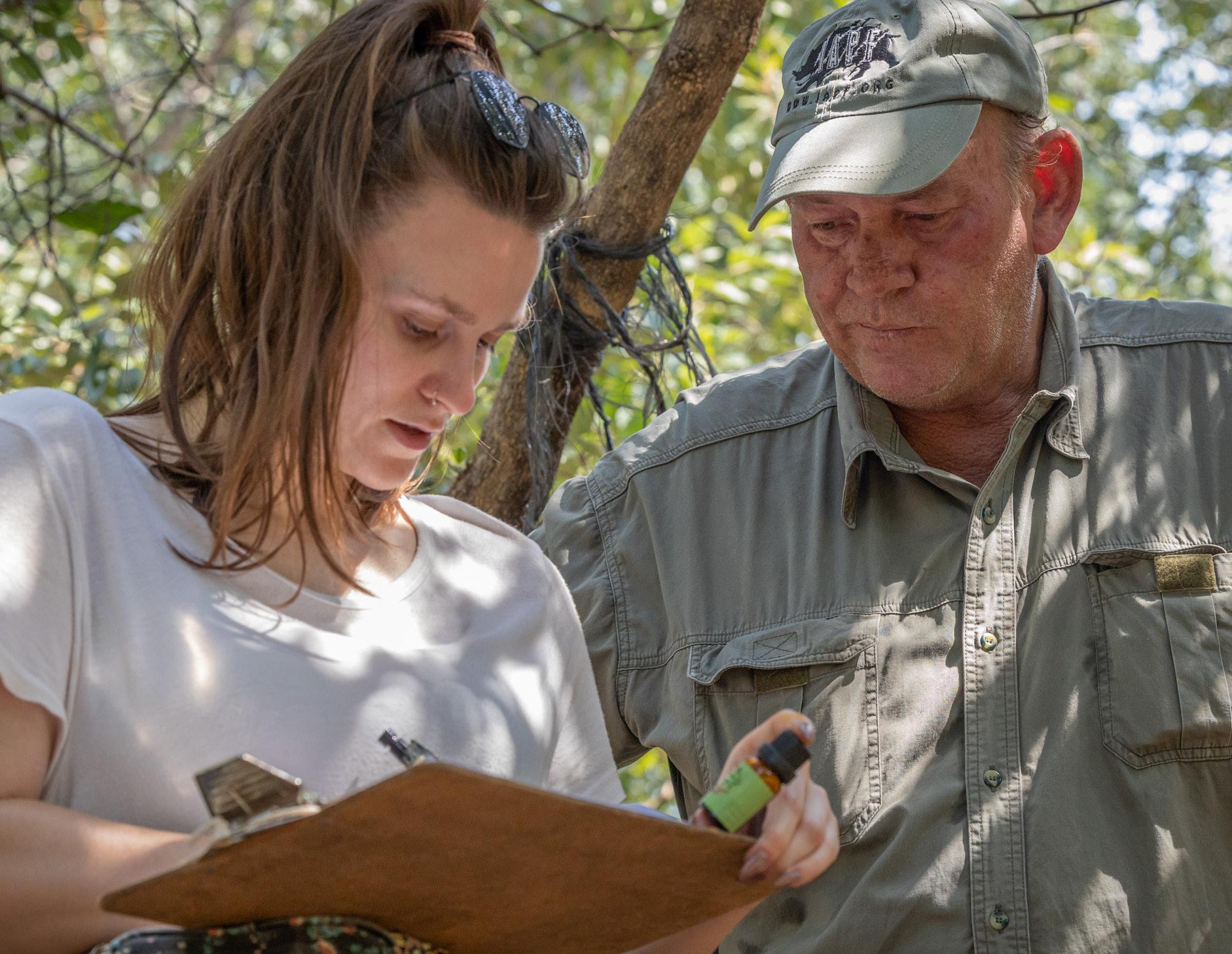
Victoria Falls, situated at the border of Zambia and Zimbabwe, is a renowned natural wonder and is considered the largest curtain of falling water in the world. As a UNESCO World Heritage Site, Victoria Falls attracts not only tourists seeking adventure and natural beauty but also those who wish to contribute to the local community and environment through meaningful service. EDU Africa’s programs in Victoria Falls are designed to harness this setting to make a positive impact through partnerships with local organizations.
In 2023, the Victoria Falls Wild Hub (VFWH) was established to take over the responsibility of leasing and managing the 4,000-acre Fuller Forest as a for-profit, purpose-driven venture. As a key buffer area between National Parks and local communities, the hub exists to facilitate efficient conservation efforts for the land, wildlife, and people in and around Fuller Forest. VFWH also inherited several animals that were rescued for rehabilitation purposes including lions, hyenas, ostriches, a duiker, a baboon, a monkey, and a crowned eagle. It only takes in and cares for animals that are considered to be in genuine need of rescue, rehabilitation, and where possible, released into the wild.
As an EDU Africa Learning Hub, VFWH welcomes students and volunteers from around the world to participate in its projects. This educational opportunity allows participants to learn about the intricate balance between wildlife and human activity.
As a team, we are passionate about people, education, and our environment. One particular project that is very close to our hearts is The Center for Ecosystem Restoration – Kenya (CER-K).
CER-K was born out of Friends of Brackenhurst Forest (FBF), a community-based organization formed in 2019 to improve the quality and accessibility of the Brackenhurst Indigenous Forest. The goal of FBF was to establish the forest as a center for education and research and to showcase the potential for indigenous ecological restoration, inspiring individuals and organizations to actively engage in ecological restoration.
With the founding of CER-K, the organization has been able to expand its vision beyond just the forest and Brackenhurst to include ecological restoration throughout Kenya. CER-K’s purpose is to support the process of halting and reversing degradation, resulting in improved ecosystem services and recovered biodiversity across the country. They currently operate from three distinct hubs: the Highland Hub, the Savanna Hub, and the Coastal Hub. CER-K is in the process of trialing different restoration-focused interventions and monitoring their impact on biodiversity, soil, water, and vegetation.
CER-K has secured a SeedBank that enables them to store up to 5 million seeds. This SeedBank addresses Kenya’s lack of diverse native plant material and provides an opportunity for CER-K to mentor restoration projects across the country while supplying them with the necessary plant materials to deliver high-quality restoration efforts.
At EDU Africa, we believe that inspiring participants to engage in positive social and environmental activities while on a program enhances their potential to become change agents in their spheres of influence and the world at large. When visiting the Brackenhurst campus, participants will have the opportunity to learn about, appreciate, and engage in projects related to forest and ecosystem restoration in Kenya.
Furthermore, a donation is made towards the ecosystem restoration projects at CER-K on behalf of each participant in our East African programs. Through their donations, participants play an integral part in reversing ecosystem degradation on the African continent and ensuring that communities will enjoy the benefits of natural indigenous ecosystems for generations to come. By continuously educating ourselves and others, we can inspire action and continue to transform lives both locally and globally.
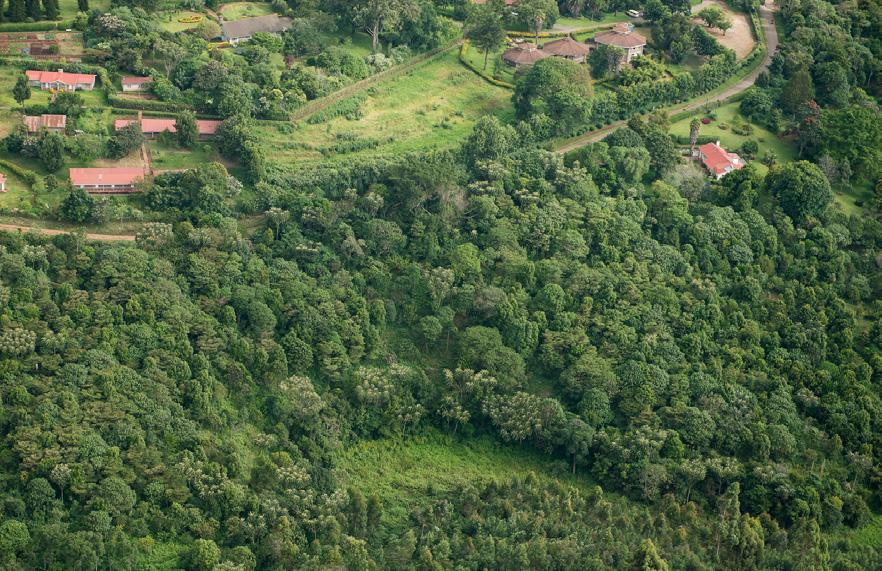
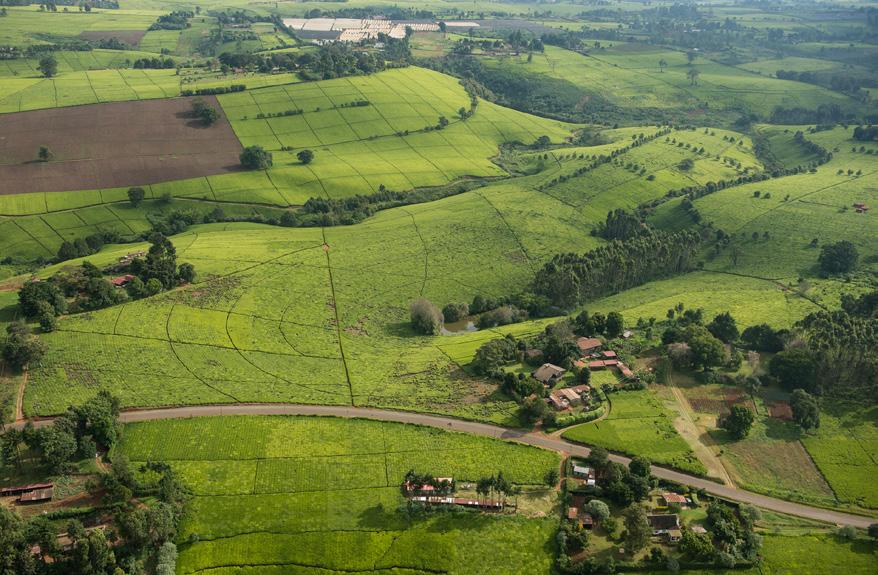
We are grateful for our collaborations with the following clients for our Middle and High School programs, which represent just a few of our many valued partners.
● American International School of Cape Town
● The Awty International School
● Bishop’s Stortford College
● Boys and Girls Club of America
● Breda Academy School
● Bullis School
● CBC St John’s
● Chadwick School
● Curro Hillcrest Primary School
● Dean Close St John’s School
● Democracy Prep Public Schools
● Dwight School
● Emmanuel Anglican College
● Felixton College
● Flintridge Preparatory School
● Friends Seminary
● Groton School
● Hellenic Academy
● Holy Innocents’ Episcopal School
● International Sharing School - Taguspark
● Laurel School
● Montgomery Bell Academy
● Obersee Bilingual School
● Oakhill School
● Pacific Ridge School
● Providence Day School
● Rainbow International School
● Saint Mary’s Hall
● St. Andrew’s Episcopal School
● St Anne’s Diocesan College
● St. Michael’s Catholic Academy
● The Bishop Strachan School
● The Boston Latin School
● The Dalton School
● The Episcopal Academy
● The Leys School
● Ursuline Academy
● Visitation School
● Waterfall College
● Independent Schools Experiential Education Network (ISEEN)
● NAFSA: Association of International Educators
● The Forum on Education Abroad
● The Global Education Benchmark Group (GEBG)
● The International Coalition of Girls’ Schools (ICGS)
“
Even though I have friends from Nigeria, Ghana, Kenya, Liberia, and The Congo, I leave their presence always longing to belong, to have a sense of identity amongst this generation’s Africans. But these sessions go beyond watching YouTube or reading material, as it puts me into a space to have dialogue and shows that my opinions and perspectives matter. The education and awareness that EDU Africa provides continue to build my confidence to be a part of the change and not a bystander.
“
You get to become friends with people you’ve never met before, you get to see beautiful animals, some in their natural environment and others protected and cared for in captivity. You also get to try new food and discover new things about a place that you may not be so familiar with.
“ This experience was one-of-a-kind and allowed me to explore an area and culture unknown. The facilitators were amazingly supportive and friendly, and made the experience all that much better.
